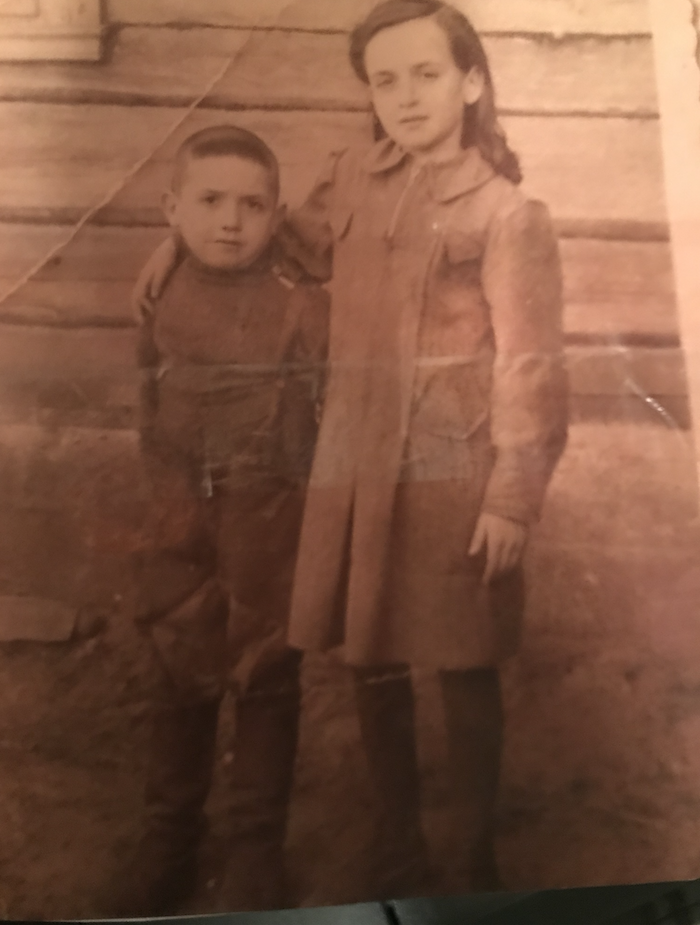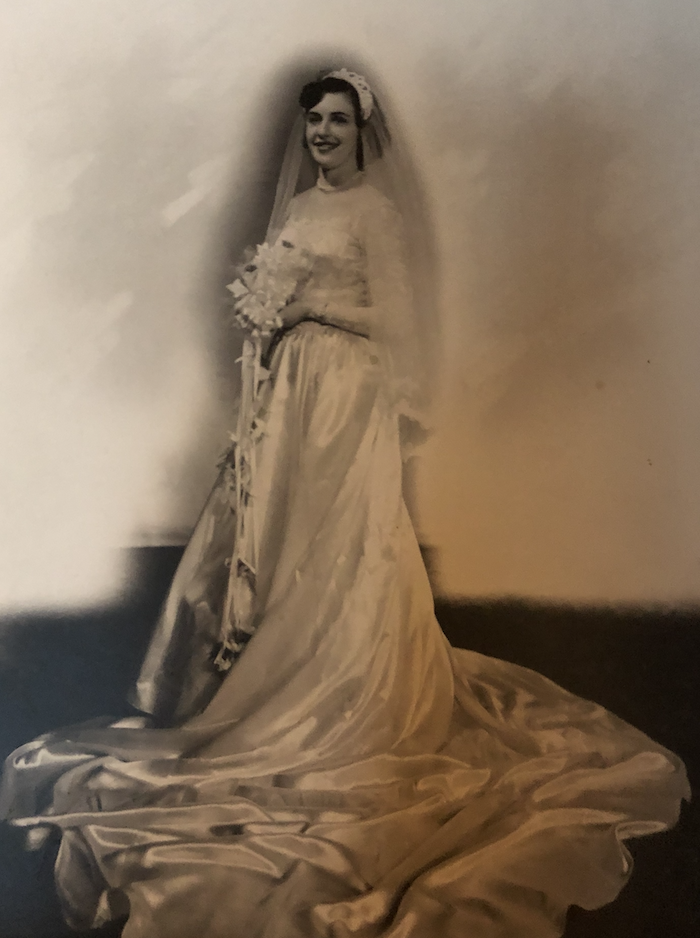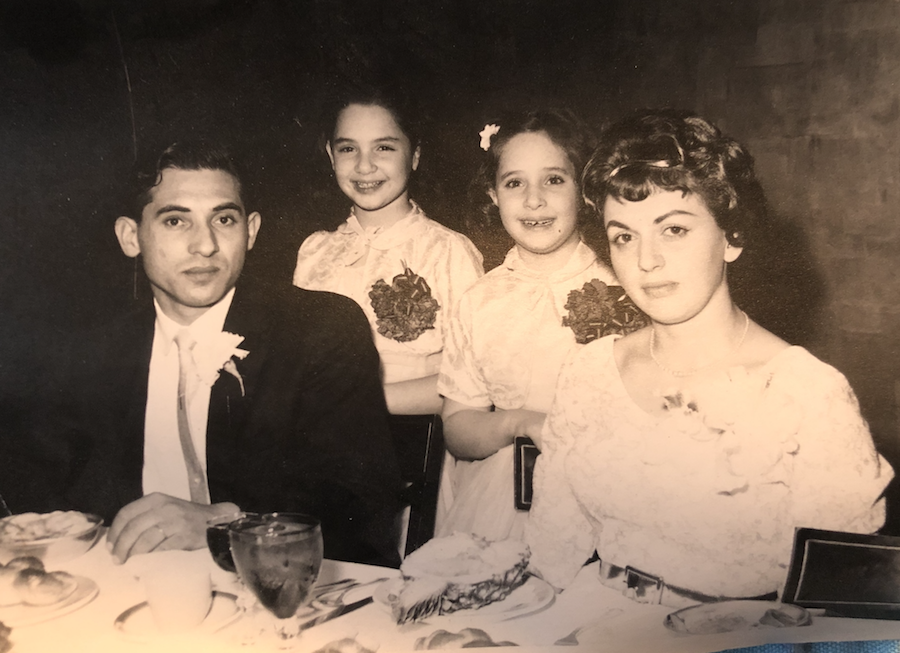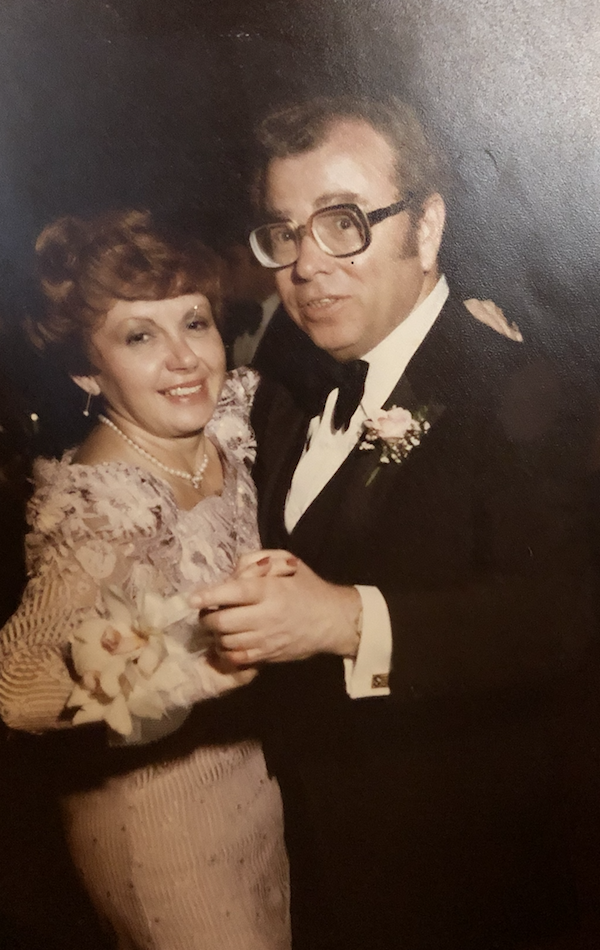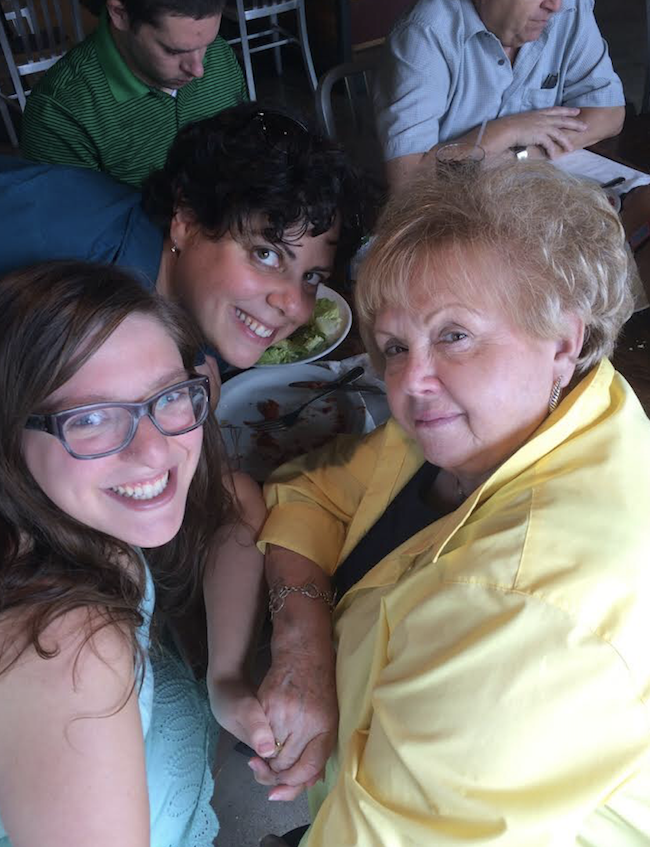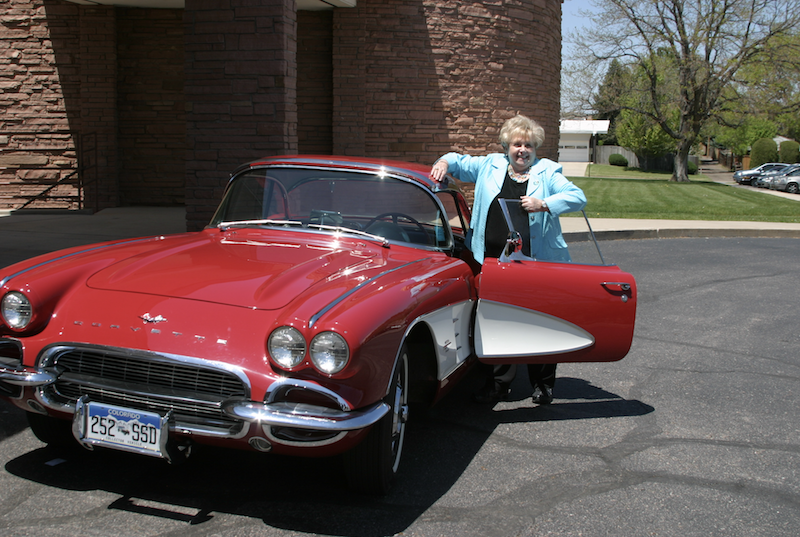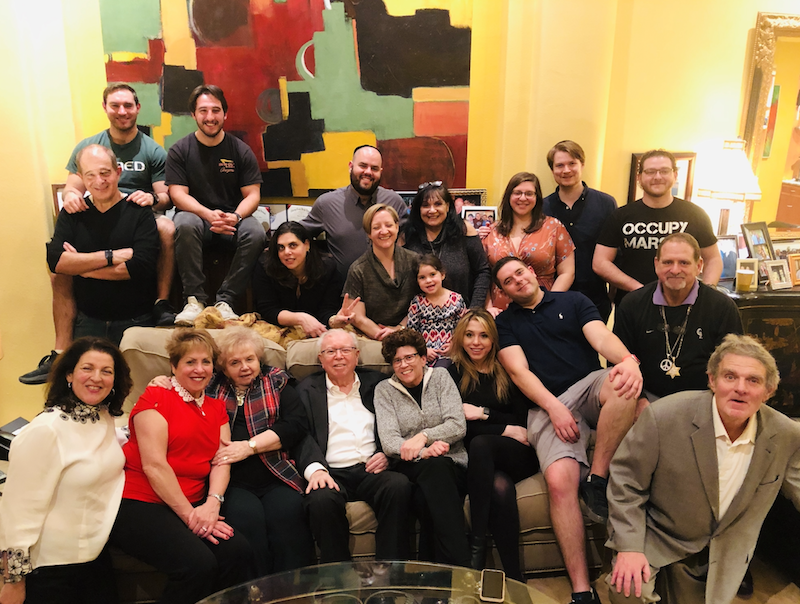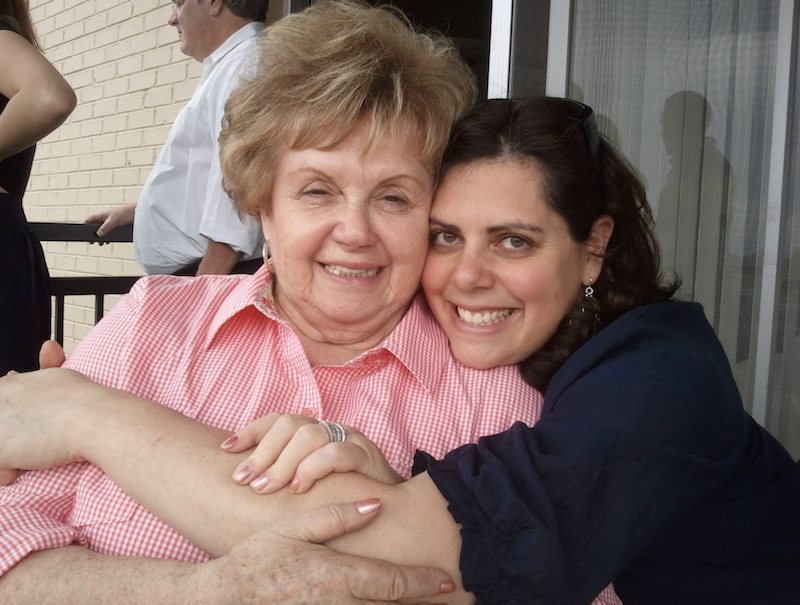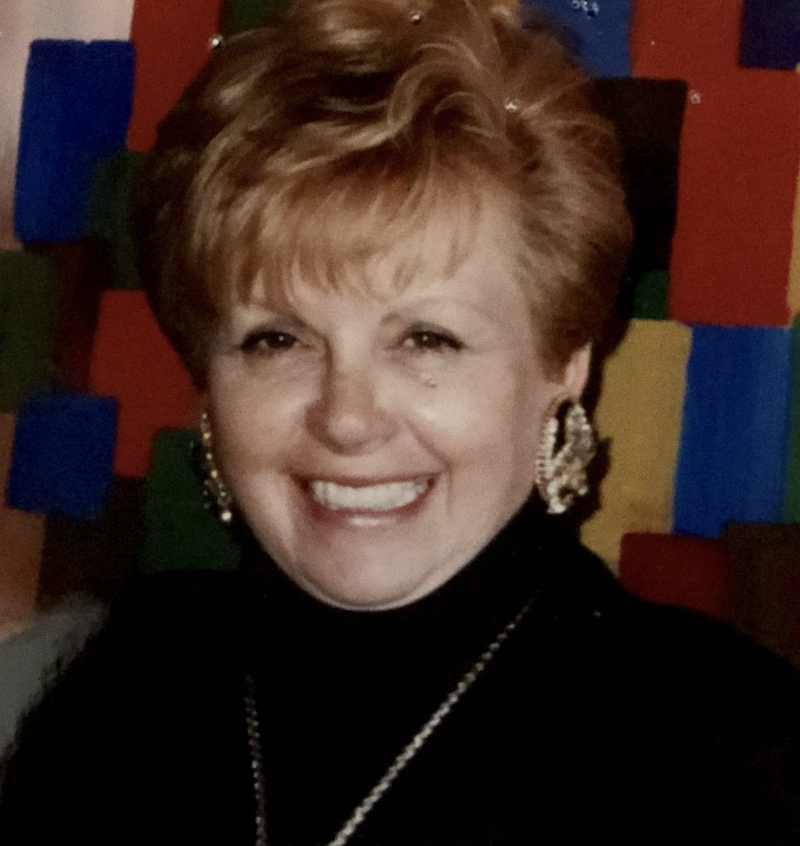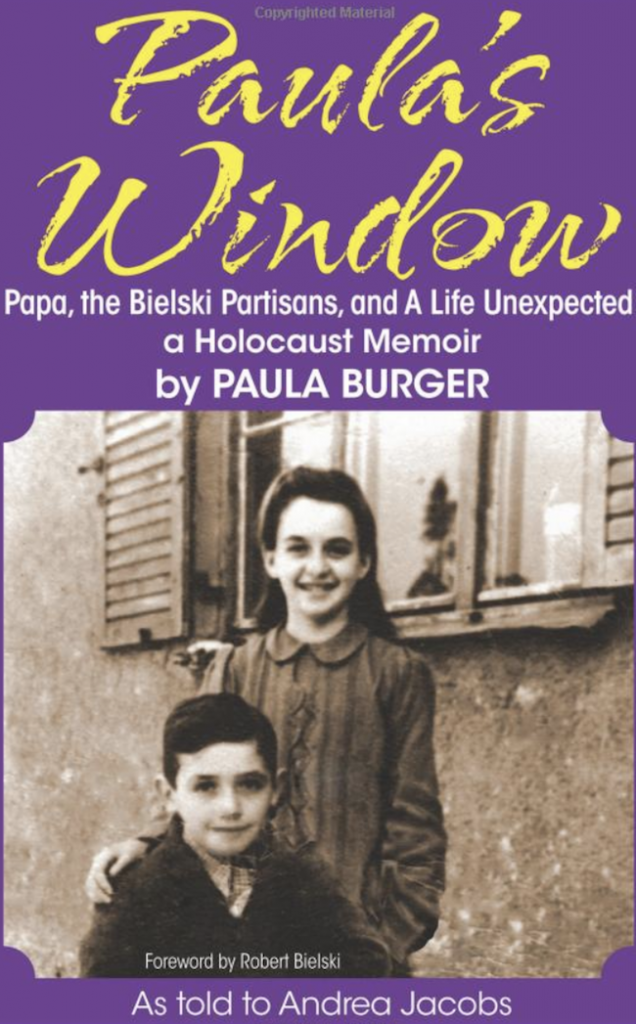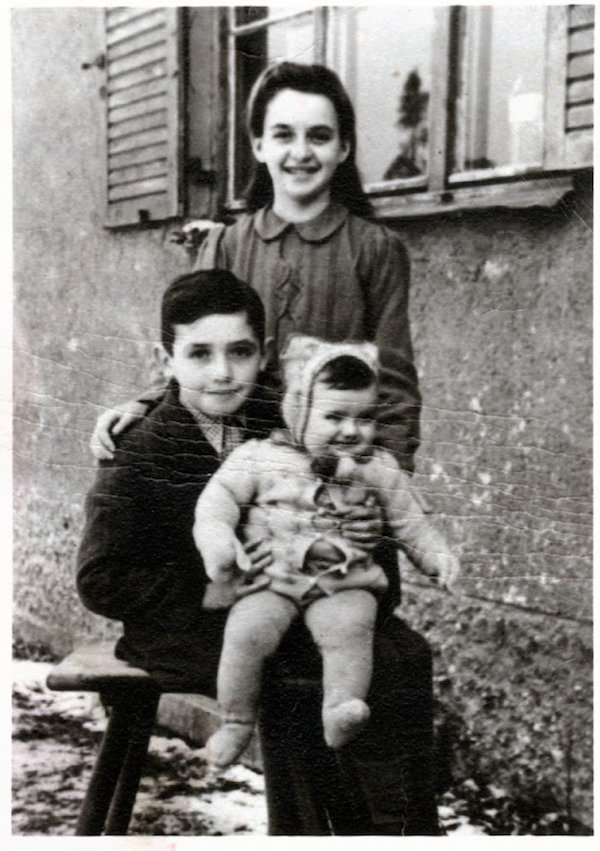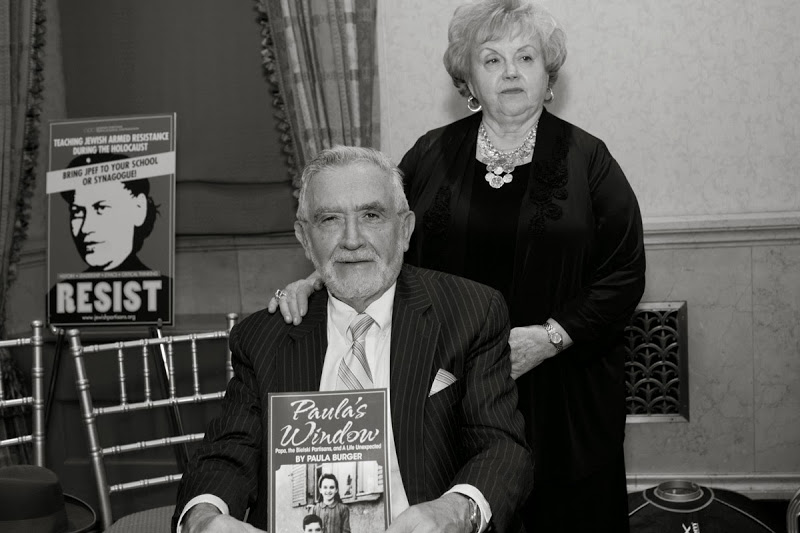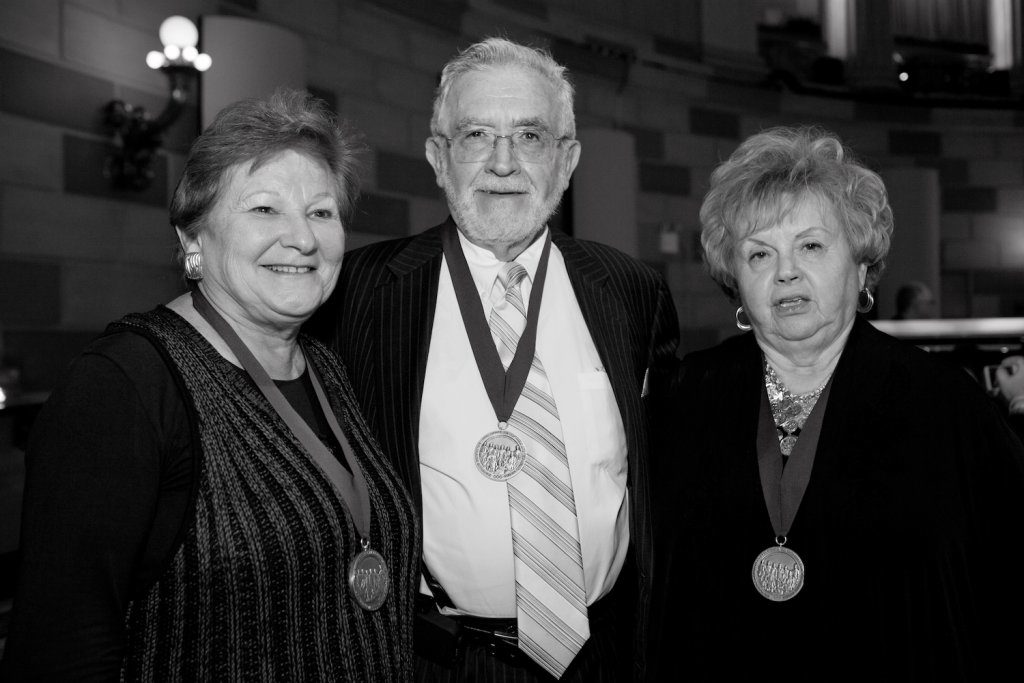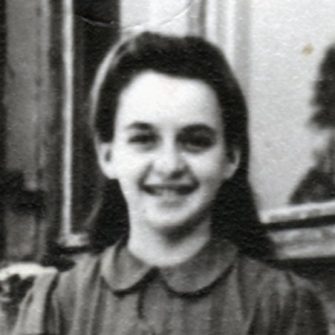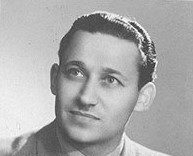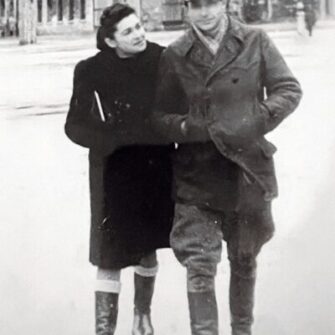The oldest surviving child of Wolf and Sarah Koladicki, Paula Burger was born in 1934 in a small town near Novogrudok, in what is now Belarus. Novogrudok had a vibrant Jewish community, and Jews made up about half of the area’s twelve thousand people. Paula’s family lived with her maternal grandparents. This was because her mother was the youngest sibling, and it was common for the youngest to stay at home and take care of one’s parents. Paula’s grandfather was a landowner – a rarity among the Jewish population of Belarus – and her father owned a small grocery store in addition to overseeing the family ranch. Paula fondly remembered the candy her father sold at his store and the middle-class life she led until the Nazis invaded Novogrudok in July 1941.
After months of deadly altercations between the Nazis and the Jews of Novogrudok, the Nazis herded the remaining Jews – including Paula’s family – into the ghetto. Paula’s father escaped and joined various partisan units, all the while formulating a plan to rescue his wife and children. Meanwhile, jealous neighbors reported Wolf to the Nazis, hoping to steal his land once he was gone. The Nazis arrested Paula’s mother in an effort to find Paula’s father. Despite interrogation and torture, Sarah could not provide the Nazis with information about her husband or the partisans. Since she spoke German, she was kept prisoner for six weeks and forced to serve as a translator. On Yom Kippur of 1942, the Nazis killed her.
By then, Paula’s father had connected with the Bielski partisans and made arrangements to smuggle Paula and her younger brother Isaac out of the ghetto. With the help of a Polish farmer who delivered water to the ghetto, Paula and Isaac were concealed in an empty water barrel and driven out of the town. Paula took extreme care to make sure Isaac, who was just 3 years old, stayed absolutely still. She knew that any sound they made would mean certain death.
After reuniting with their father at the Bielski camp in the forest, Paula and Isaac remained with the group throughout the war, traveling with them when they could and hiding in forest shelters when harsh winter conditions prevented them from doing so. Though she was only eight years old when her family joined the Bielskis, Paula actively contributed to armed resistance against the enemy, often using her small hands to help pack explosives to derail and destroy Nazi supply trains.
When the war finally ended, Paula’s father refused to go back to Novogrudok and the family instead went to Lida before crossing over into Czechoslovakia. Aided only by their wits and the kindness of strangers, the family made their way to the American Zone in West Germany. They spent several years in the Displaced Persons camp at Foehrenwald (Föhrenwald), where Paula learned English. In 1949, Paula, her father, and brother, as well as her new stepmother and baby sister Fay, moved to Chicago to join relatives. Paula started high school and began honing her natural talent as an artist.
When Paula was little, her most prized possession had been a box of colored pencils. She would draw for hours on end. Although Paula did not begin painting professionally until she retired from a career in retail, real estate, and nursing home administration, she was always painting pictures in her head. Art and color were so important to Paula, and she was determined to pursue this passion. In a journal she kept as a young woman, Paula wrote, “I hope I don’t die before I get to paint. ”
When Paula was able to devote herself to painting full time, she became a successful artist. Many of her works include beautiful landscapes, still lifes, and colorful, Judaic-themed images. Her artwork has been shown in galleries throughout Colorado, and her works are included in public, private, and corporate collections around the world. After a childhood filled with the darkness of horror and loss, Paula dedicated herself to capturing the beauty in life with her bold use of color and imagery.
After nearly fifty years, Paula started speaking publicly about her experiences as a young Jewish partisan in 1995. Paula regularly visited students in middle schools, high schools, and universities, as well as numerous civic groups, to share her story. Paula’s purpose was to let audiences know that you can always overcome adversity. No matter how difficult your life gets, there will be a way through it. Paula used her quick wit and humor to connect to her listeners and to inspire them. After she spoke, people would often come up to her to share a story or a hug. In 2014, she participated in a JPEF teacher training near her home in Denver, sharing her life with the attending educators.
In 2013, Paula worked with a journalist friend to capture her story for posterity, and she published her autobiography, Paula’s Window: Papa, the Bielski Partisans, and A Life Unexpected. In her book, Paula vividly recalls her childhood experience of survival in the forests during World War II. She is also the subject of a chapter in the Scholastic Inc. book, Survivors: True Stories of Children in the Holocaust, written by Allan Zullo.
Paula passed away in September 2019 at the age of 85. She is survived by her siblings Isaac, Fay, and their families; by her children, Susan, Freda, Steven, and her step-daughter Robbyn; and by her nine grandchildren and one great-granddaughter.

